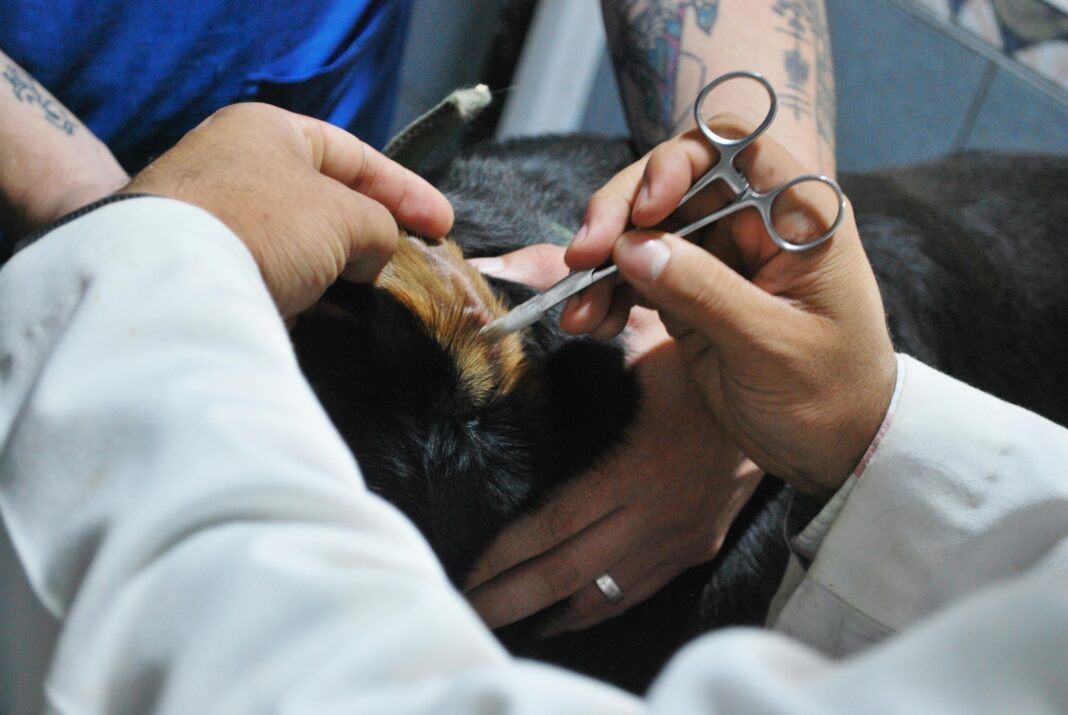As a loving pet owner, being aware of common dog diseases can significantly enhance your furry friend’s quality of life. This guide provides you with valuable insights into the causes, symptoms, diagnosis, treatment, and prevention of some of the most prevalent canine health issues. Let’s dive in!
Understanding Canine Health
The Importance of Regular Vet Check-Ups
Regular veterinary check-ups are crucial. These visits allow for early detection and treatment of potential health problems before they escalate. It’s advisable to schedule a vet appointment at least once a year, or more frequently for aging dogs or those with pre-existing conditions.
Common Dog Diseases
1. Parvovirus
Causes
Parvovirus is highly contagious and primarily affects unvaccinated puppies. It spreads through contact with contaminated feces, surfaces, or objects.
Symptoms
-
- Severe vomiting
-
- Diarrhea (often bloody)
-
- Lethargy
-
- Loss of appetite
Diagnosis
A veterinarian will perform a physical exam and may conduct a test for parvovirus, which provides quick results.
Treatment
Treatment often includes intravenous fluids, anti-nausea medication, and sometimes antibiotics to prevent secondary infections. Hospitalization may be necessary.
Prevention
Vaccination is the best preventive measure. Ensure your puppy receives the complete vaccination series during their first year.
2. Kennel Cough
Causes
Kennel cough, or canine infectious tracheobronchitis, is caused by various viruses and bacteria. It spreads easily in places where dogs congregate, such as kennels or parks.
Symptoms
-
- Dry cough
-
- Sneezing
-
- Nasal discharge
-
- Low-grade fever
Diagnosis
Your vet will conduct a physical exam and often listen to your dog’s cough for distinctive sounds.
Treatment
In mild cases, home care may be sufficient, including rest and cough suppressants. In severe cases, antibiotics may be necessary.
Prevention
Vaccination can help protect against kennel cough. Avoiding crowded places during outbreaks also helps reduce the risk.
3. Hip Dysplasia
Causes
Hip dysplasia is a genetic condition that occurs when a dog’s hip joint doesn’t fit into the hip socket properly. It’s common in larger breeds.
Symptoms
-
- Difficulty standing up
-
- Reluctance to jump or climb stairs
-
- Pain while walking
-
- Decreased activity levels
Diagnosis
Your vet will conduct a physical exam and may recommend X-rays to confirm the diagnosis.
Treatment
Weight management, pain relief medications, and physical therapy can help alleviate symptoms. In severe cases, surgery may be required.
Prevention
Though genetic, providing a proper diet and maintaining a healthy weight can help reduce the risk.
4. Heartworm Disease
Causes
Heartworms are transmitted through mosquito bites and can lead to severe cardiovascular issues.
Symptoms
-
- Coughing
-
- Fatigue after moderate exercise
-
- Decreased appetite
-
- Weight loss
Diagnosis
Blood tests and X-rays will help diagnose heartworm disease.
Treatment
Treatment often involves a series of injections to kill the worms, and strict rest for the dog is required during recovery.
Prevention
Monthly heartworm preventives are recommended and should start when your dog is young or at the start of mosquito season.
5. Ear Infections
Causes
Ear infections can be caused by allergies, moisture, or foreign bodies in the ear canal. Dogs with floppy ears tend to be more prone to infections.
Symptoms
-
- Scratching at the ear
-
- Bad odor from the ear
-
- Red or swollen ear canal
-
- Discharge from the ear
Diagnosis
A vet will inspect your dog’s ear and may take a sample for laboratory analysis.
Treatment
Antibiotics, antifungal medications, and cleaning solutions may be prescribed to treat the infection.
Prevention
Regularly check and clean your dog’s ears, especially after bathing or swimming, to prevent moisture buildup.
Practical Tips for Pet Owners
Vaccination Schedule
Staying updated on your dog’s vaccinations is essential. Consult with your veterinarian about an appropriate vaccination schedule tailored to your dog’s age and health status.
Nutrition and Diet
Feeding your dog a balanced, high-quality diet can boost their immune system, helping them ward off illnesses. Always consult your vet for suitable food recommendations tailored to your dog’s breed and age.
Regular Exercise
Routine exercise is vital for your dog’s physical and mental well-being. Regular walks or playful activities help prevent obesity and other related health issues.
Grooming and Hygiene
Good hygiene practices can prevent various diseases. Regular grooming, dental care, and bathing can help keep your dog healthy and happy.
Monitor Behavior and Physical Changes
Pay close attention to any changes in your dog’s behavior, appetite, or appearance. Early detection can lead to more effective treatment.
Building a Strong Connection with Your Vet
Having a good relationship with your veterinarian can improve your dog’s health management significantly. Don’t hesitate to ask questions or express concerns during your visits. They can provide personalized advice and support tailored to your dog’s specific needs.
Being aware of these common dog diseases and how to manage them can make you a more responsible and caring pet owner. Consistent care, attention to detail, and a proactive approach to your dog’s health will ensure a happier, healthier life for your furry companion.





